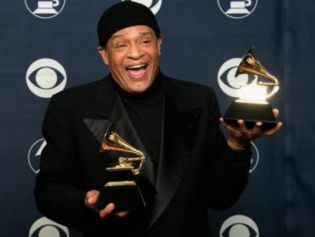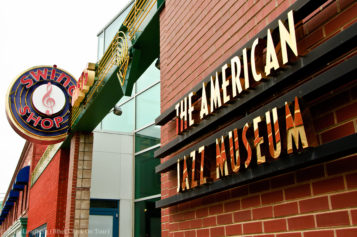Although jazz is widely known as an original creation of African-American people, the numbers are showing a painful lack of attention and regard for this art form from the people who created it.
That’s a well-established fact, but Atlanta Blackstar wondered, How do we rectify the problem? Is there a way to get Black people excited about jazz once again?
According to data from a study conducted by the National Endowment for the Humanities, the audience for jazz is a largely white one. White Americans make up around 80 percent of jazz concert attendees. Blacks account for just 17 percent of those attending concerts and 20 percent of those listening to jazz recordings. Around a third (34 percent) of those who “like jazz best,” identify as Black.
The strongest identifier for participation in jazz (going to concerts, purchasing CDs) is education. The more educated a person is, the more likely that person is to engage in and support jazz and most other arts. In turn, education strongly correlates with income. Support for jazz increasees the higher the income, according to the jazzhouse.org.
Taking into account that Black people in America are generally funneled into worse school systems than their white counterparts, these numbers make a little more sense.
The only way, it seems, to turn this phenomenon around is to not only make jazz more accessible to the very people that invented it, but to do it at a young age.
In an article titled “Jazz in America: Who’s Listening?” by Scott K. DeVeaux, DeVeaux suggests that if African-Americans were more inclined by educational training to attend concerts and more able to afford to do so, they would support jazz in even greater numbers than they now do.
“The data bear this out: nearly half (49 percent) of African-Americans expressed a desire to attend more jazz concerts, as opposed to less than a quarter (22 percent) of whites,” he writes.
“The problem is, it’s not just a decline in jazz, there is a decline in opera and in classical music, period,” said Alexander Smalls, owner of the popular New York jazz venue and restaurant Minton’s. “Primarily because we are a society of now. If it’s not happening right in front of people, they have no reference. We have done such a bad job at educating, so there is no celebration of the music. We need to bring jazz out of its classical state and put it in more of a contemporary setting and do a better job in bringing the music and the value of this discipline to the audience that we want.”
The best way to make such a beautiful genre accessible is to bring it to children at a young age, create programs that promote jazz in schools and let children grow up with the art.
“I think that when something becomes a part of your life at the age of four instead of fourteen/ fifteen it just becomes a habit and becomes part of you,” said Ronald Markham, president and CEO of the New Orleans Jazz Orchestra. “I play music because I grew up in a small church that had amazing music. So I do think that institutionalizing it as a young age you will have a better chance of it becoming a part of a person’s life.”

